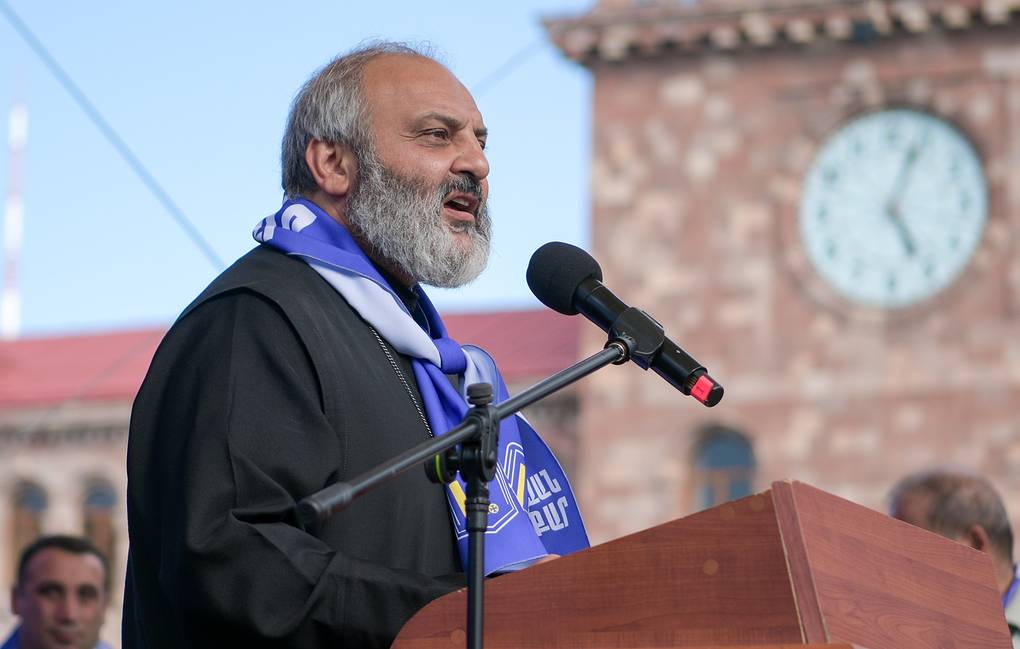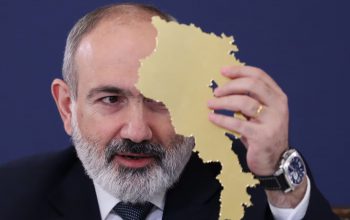On Sunday, tens of thousands, led by Archbishop Bagrat Galstanyan, rallied in Yerevan, demanding Prime Minister Nikol Pashinyan’s resignation over his territorial concessions to Azerbaijan.
The massive crowd, starting from Republic Square, marched to Pashinyan’s private residence. Galstanyan, addressing the rally, expressed his desire to meet Pashinyan to “present our demand” and offer him “the last chance” to resign “civilizedly.”
“This movement is about attaining a promised land,” Galstanyan declared. “The current government, particularly its leader, is the obstacle. He must therefore leave.”
As the head of the Armenian Apostolic Church diocese in northern Tavush province, Galstanyan also announced his readiness to lead a new interim government to stop the “destruction of our homeland” and conduct “pre-term or regular elections.” He said he asked the supreme head of the church, Catholicos Garegin II, to “freeze my spiritual service,” calling it a personal decision reflecting his commitment to his homeland.
At the entrance to the residential area where Pashinyan and other officials live, heavily guarded by police, Galstanyan reiterated his demand for Pashinyan to meet with the protesters and step down peacefully. It was unclear if Pashinyan was at home, as he had traveled to flood-hit Lori province earlier that day. The protesters later returned to Republic Square, with Galstanyan urging them to engage in “disobedience actions” on Monday.
Galstanyan’s potential interim leadership reportedly has the backing of various opposition groups condemning Pashinyan’s decision to cede disputed areas around Tavush to Azerbaijan. Despite the current Armenian constitution barring him from the prime minister position due to his Canadian citizenship, Galstanyan implicitly called for a constitutional amendment.
Hovik Aghazarian, a senior lawmaker from Pashinyan’s Civil Contract party, dismissed Galstanyan’s aspirations as legally unfounded, asserting that lawmakers would not support such an illegal move.
Galstanyan initially demanded Pashinyan’s resignation during protests in Tavush on May 9. Pashinyan rejected the demands, defending his concessions to Baku and criticizing Galstanyan and the church, even threatening to impose new taxes on it.
In response to ongoing antigovernment protests since April 20, Armenia’s Investigative Committee announced charges against 25 participants, with ten still in custody. Galstanyan condemned these charges as politically motivated and criticized other repressive measures against his supporters, also accusing the authorities of attempting to bug his hotel room in Yerevan.




